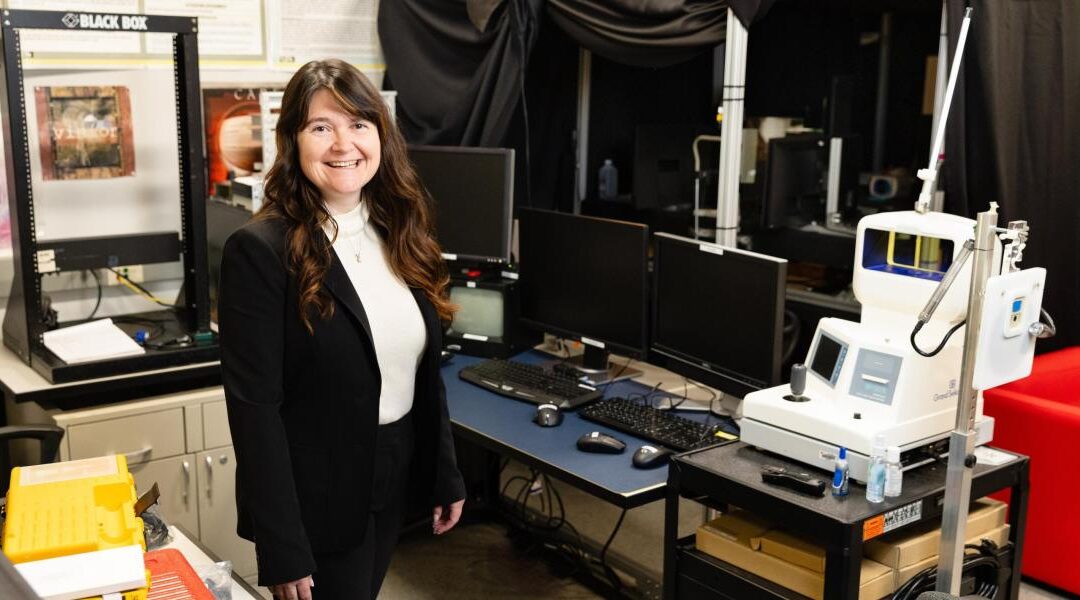Nearly half of adolescents and young adults with lingering symptoms of concussion suffer from eye coordination disorders that cause double and blurred vision, headaches and difficulties concentrating. “These conditions make it hard to read books, work on a computer or even use a smartphone, and the impact on cognition and learning can be severe. They also delay the return to sports, work and driving for young people,” said Tara Alvarez, a distinguished professor of biomedical engineering at NJIT.
In a recent study published in the British Journal of Sports Medicine, Alvarez and colleagues show for the first time that there is an effective way to treat these post-concussion disorders. They are known as convergence insufficiency (CI), a condition causing double vision in which the muscles that control eye movements don’t coordinate to focus on near objects, and accommodation insufficiency (AI), which makes objects appear blurry.
With a multi-institutional team of engineers, optometrists, vision researchers, sports medicine physicians and biostatisticians, Alvarez set out four years ago to gather data that could potentially establish guidelines to help clinicians diagnose and treat patients. It would, for example, enable data-driven decisions about the timing, dosing and need for treatment. To read the full story.

